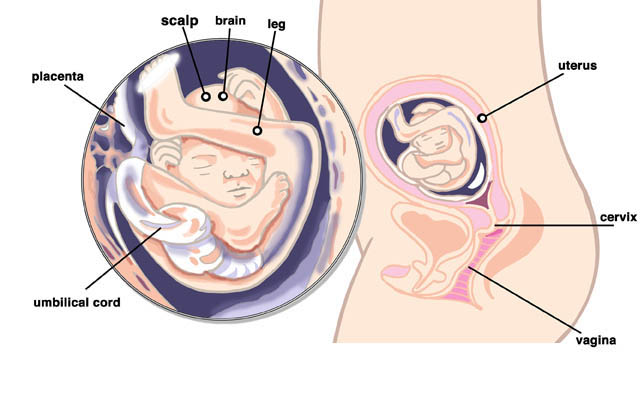19 Weeks Pregnant
Related Articles
External Links
- This article has no external links.
Your baby at 19 weeks
You can add another centimetre to your baby's length this week, making them 15cm crown to rump, but their weight will be increasing even more dramatically. Already they weigh around 227g. The nerve cells for all the senses (touch, sight, hearing, smell and taste) are developing rapidly. You may have seen pictures of newborn babies, usually premature, covered in a white waxy substance. This is called vernix caseosa, and your baby is already covered in it, protecting their delicate skin from the amniotic fluid. Without it your baby would have very wrinkly skin! This has usually disappeared by the time the baby is born but in some cases it still remains at birth, don't worry though, it does wash off.

How you are feeling
There are lots of things that we can blame on pregnancy, but did you know that you can add forgetfulness to the list? When a woman is pregnant the number of brain cells that she has actually decreases, and interestingly, this reduction is even more pronounced in women carrying girls. This is only a temporary effect and your brain will be back up and running soon after pregnancy. So don't give yourself a hard time if you find yourself at the supermarket checkout with the week's groceries and no wallet, you are not the first mother-to-be to make that mistake and you most certainly will not be the last!
What you need to do
After your first scan your sonographer (the person in charge of the ultrasound scan), or midwife, should have booked you in for your second scan at around 20 weeks. If you are in any doubt as to whether this appointment was made then contact your midwife now to confirm. If possible, try to ensure that your partner can come with you. If you are a single parent then bring a close friend or family member; the person you would like to attend the birth with you would be a good choice.
It is likely that, by now, you have started thinking about the process and the pain of labour. Start doing some research into the types of pain relief available; this isn't limited to drugs. There are plenty of natural forms of pain relief which many women find effective. Lots of hospitals have birthing pools available and these have become very popular as a form of managing the pain of contractions and childbirth. Other approaches to coping with the pain include massage, aromatherapy, and the use of different labouring positions and of physical supports. Practicing yoga or meditation during pregnancy is often thought to help focus your mind and breathing during labour, which in turn can reduce the duration, and the trauma. Remember that an elective caesarean is only available on the NHS if there is medical need for it, and you should not see this as an easy alternative to labour. A caesarean section involves major abdominal surgery and as with all operations it carries its own risks such as infection of the wound, or of the womb lining.
| << 18 Weeks Pregnant | 20 Weeks Pregnant >> |